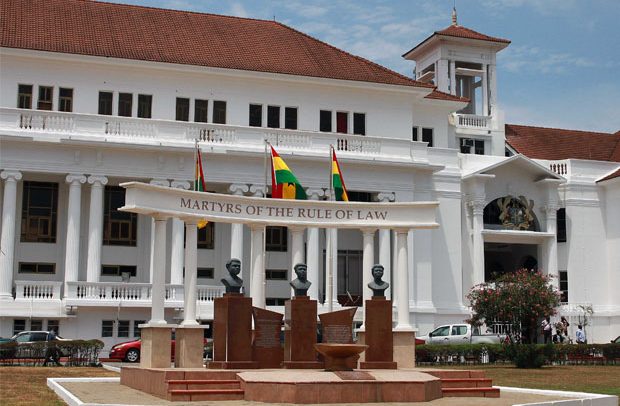The Supreme Court says the Accra High Court presided over by Justice Amos Wuntah-Wuni, has jurisdiction to summon Kennedy Ohene Agyapong to appear before it to answer allegations of contempt against him.
The court held that either the High Court, Labour Court 2, presided over by Justice Frank Aboadwe Rockson, or the High Court, Land Court 12, presided over by Justice Amos Wuntah-Wuni, being divisions of the High Court, had jurisdiction to summon the Applicant, hence his application for certiorari was refused and dismissed.
This was contained in a 31-page judgement detailing the reasons why a five-member panel of the Supreme Court refused an application of the Assin Central Member of Parliament praying the Court to terminate the contempt proceedings against him by the Accra High Court.
On October 14 after carefully reviewing the processes filed together with the oral submissions by Counsel for the Applicant and Respondent, the Supreme Court by a unanimous decision, refused and dismissed the application by Mr Agyapong for certiorari to quash the order of Justice Wuntah Wuni directing him to appear before it to answer contempt charges.
The Court said it was unable to grant the Applicant’s application, saying that his alleged conduct if proven against him scandalized the Court and brought the administration of Justice into disrepute and would therefore ground the charge of contempt.
The Supreme Court stated that from the processes filed in the application, Applicant alleged that his alleged scandalous comments were in respect of the case of Emmanuel Mompi and two others vrs. Kennedy Ohene Agyapong, before the Labour Court Two however, a look at all the filed processes of the case, showed that the processes were filed in the land division of the High Court.
“In fact, the Suit Number is one which is given to cases in the Land Division of the High Court. This clearly demonstrates that the divisions of the High Court are for administrative purposes only but not jurisdictional segregation.”
The apex court stated that every division of the High Court, has power to issue contempt summons for persons to appear before it to answer to the charges of contempt., and to hold otherwise would be to pretend that the effects of contemptuous acts of individuals on any administrative division of the High Court, affects that administrative division alone.
“In our opinion, it does not. An attack on any one judge and, or division of the High Court in ways that, when proven, will amount to contempt of court, is an attack on the administration of Justice in general. It is an attack on the Judiciary, which is tasked with the constitutional duty to administer justice.”
The Court said Justice Wunta Wuni was not precluded from issuing contempt summons to Mr Agyapong to appear before him in the manner that he did. “More so when the Judge was of the opinion that the alleged scandalous and/or threatening words of Mr Agyapong were in respect of the case pending before him.”
“Even if there is any merit to the Applicant’s contentions in this regard, which we think there is not, we are of the opinion that the plaint by the Applicant that his words were targeted at the High Court, (Labour Court 2) are defences that the Applicant may put up at the High Court for a possible exculpation. This court’s supervisory jurisdiction is not the forum for the Applicant to put up his defense to the charge of contempt.”
The Supreme Court noted that as for the argument by the Applicant that a judge of the High Court could not commit for contempt of another, they saw no reason in principle why in appropriate circumstances, a judge of the High Court could not do that.
“This is because the primary purpose of contempt proceedings is not to vindicate any particular judge but rather to ensure that the administration of justice, the primary duty of the court is not put to disrepute and public confidence in the Court, its officers and processes eroded. Therefore, where the conduct of an individual has the potency of defying, scandalizing or lowering the authority of the court or bringing the administration of justice into disrepute, a court differently constituted may hear the matter.”
“For the above reasons, it is immaterial whether Mr Agyapong’s unsavory comments were directed at the High Court Labour Court 2, or the High Court Land Division Land Court 12.
GNA

